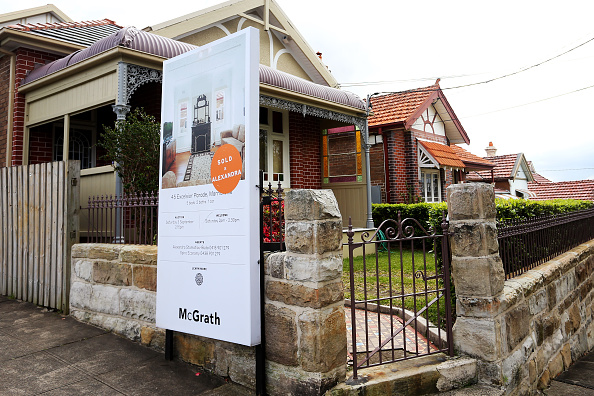Australians Intend to Spend $30 Billion This Christmas
Flights are the most expensive item in holiday budgets this silly season
Despite the cost of living crisis, Australians intend to spend $30 billion this Christmas on presents and festivities, which is about 10% more than they did in 2022. This averages out to about $1,479 per person, up from $1,361 in 2022, according to Finder’s Consumer Sentiment Tracker survey conducted last month.
The survey asked people aged over 18 in Australia’s five biggest states how much they intended to spend across the key categories of presents, food, alcohol, eating out and travel this Christmas. Victorians have the biggest spending budgets of $1,765 per person, followed by those in New South Wales at $1,657. The lowest spending state will be Queensland at $1,067 per person. Among the generational age groups, millennials intend to spend the most this Christmas at $1,924 per person on average, and Gen Z plans to spend the least at $1,023 per person.
The biggest budget category is airfares with an estimated $533 average spend per person. Residents of New South Wales will spend the most at $710 per person, while those living in one of Australia’s most traditionally popular holiday destinations – Queensland – will spend the least at $316 per person. Gen Y Australians will be the biggest travel spenders this season by a large margin, spending $898 per person for flights compared to an average of $440 or less across all other generational age brackets.
Domestic airfares hit a historical high in December 2022. They have since fallen but remain above pre-pandemic levels. A report released by the Australian Competition and Consumer Commission (ACCC) in June found that prices were coming down due to lower jet fuel costs, an easing in post-COVID travel demand and “the rising cost of living becoming a greater concern for consumers”.
But on a long-term view, the ACCC says a lack of industry competition means airfares will remain relatively expensive in Australia. “Without a real threat of losing passengers to other airlines, the Qantas and Virgin Australia airline groups have had less incentive to offer attractive airfares, develop more direct routes, operate more reliable services, and invest in systems to provide high levels of customer service, ACCC Chair Gina Cass-Gottlieb said. “Rex’s expansion onto major intercity routes and Bonza’s launch have been positive developments for competition, but their share of the market is small and there are barriers to growth.”
After flights, the next most expensive Christmas category was presents, with Australians planning to spend an average of $373. Among the remaining categories, Australians will spend an average of $249 on food, $192 on alcohol and $133 on dining out. Baby boomers are planning the booziest Christmas with an average alcohol spend of $524 per person, which is vastly higher than all other age groups who intend to spend $110 or less.
Many Australians say they are trying to rein in their spending by planning their Christmas celebrations early. The survey found 26% of respondents planned to take advantage of Black Friday sales and 25% will buy food and presents early to help control their spending. Almost one in five Aussies say they will implement a gift-giving limit, while 8% plan to make gifts and 7% plan to re-gift unwanted presents. Some families are giving up on gifts altogether, with 6% saying they’ve agreed to a present-free Christmas this year.
This stylish family home combines a classic palette and finishes with a flexible floorplan
Just 55 minutes from Sydney, make this your creative getaway located in the majestic Hawkesbury region.
Continued stagflation and cost of living pressures are causing couples to think twice about starting a family, new data has revealed, with long term impacts expected
Australia is in the midst of a ‘baby recession’ with preliminary estimates showing the number of births in 2023 fell by more than four percent to the lowest level since 2006, according to KPMG. The consultancy firm says this reflects the impact of cost-of-living pressures on the feasibility of younger Australians starting a family.
KPMG estimates that 289,100 babies were born in 2023. This compares to 300,684 babies in 2022 and 309,996 in 2021, according to the Australian Bureau of Statistics (ABS). KPMG urban economist Terry Rawnsley said weak economic growth often leads to a reduced number of births. In 2023, ABS data shows gross domestic product (GDP) fell to 1.5 percent. Despite the population growing by 2.5 percent in 2023, GDP on a per capita basis went into negative territory, down one percent over the 12 months.
“Birth rates provide insight into long-term population growth as well as the current confidence of Australian families,” said Mr Rawnsley. “We haven’t seen such a sharp drop in births in Australia since the period of economic stagflation in the 1970s, which coincided with the initial widespread adoption of the contraceptive pill.”
Mr Rawnsley said many Australian couples delayed starting a family while the pandemic played out in 2020. The number of births fell from 305,832 in 2019 to 294,369 in 2020. Then in 2021, strong employment and vast amounts of stimulus money, along with high household savings due to lockdowns, gave couples better financial means to have a baby. This led to a rebound in births.
However, the re-opening of the global economy in 2022 led to soaring inflation. By the start of 2023, the Australian consumer price index (CPI) had risen to its highest level since 1990 at 7.8 percent per annum. By that stage, the Reserve Bank had already commenced an aggressive rate-hiking strategy to fight inflation and had raised the cash rate every month between May and December 2022.
Five more rate hikes during 2023 put further pressure on couples with mortgages and put the brakes on family formation. “This combination of the pandemic and rapid economic changes explains the spike and subsequent sharp decline in birth rates we have observed over the past four years,” Mr Rawnsley said.
The impact of high costs of living on couples’ decision to have a baby is highlighted in births data for the capital cities. KPMG estimates there were 60,860 births in Sydney in 2023, down 8.6 percent from 2019. There were 56,270 births in Melbourne, down 7.3 percent. In Perth, there were 25,020 births, down 6 percent, while in Brisbane there were 30,250 births, down 4.3 percent. Canberra was the only capital city where there was no fall in the number of births in 2023 compared to 2019.
“CPI growth in Canberra has been slightly subdued compared to that in other major cities, and the economic outlook has remained strong,” Mr Rawnsley said. “This means families have not been hurting as much as those in other capital cities, and in turn, we’ve seen a stabilisation of births in the ACT.”
This stylish family home combines a classic palette and finishes with a flexible floorplan
Just 55 minutes from Sydney, make this your creative getaway located in the majestic Hawkesbury region.


















